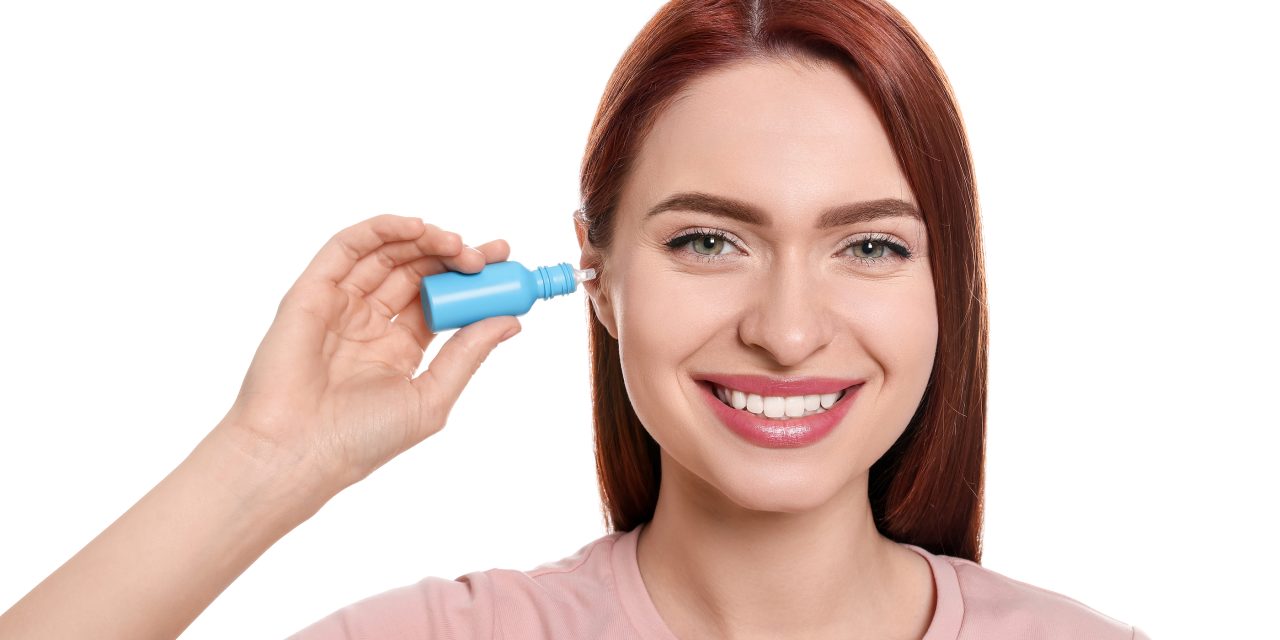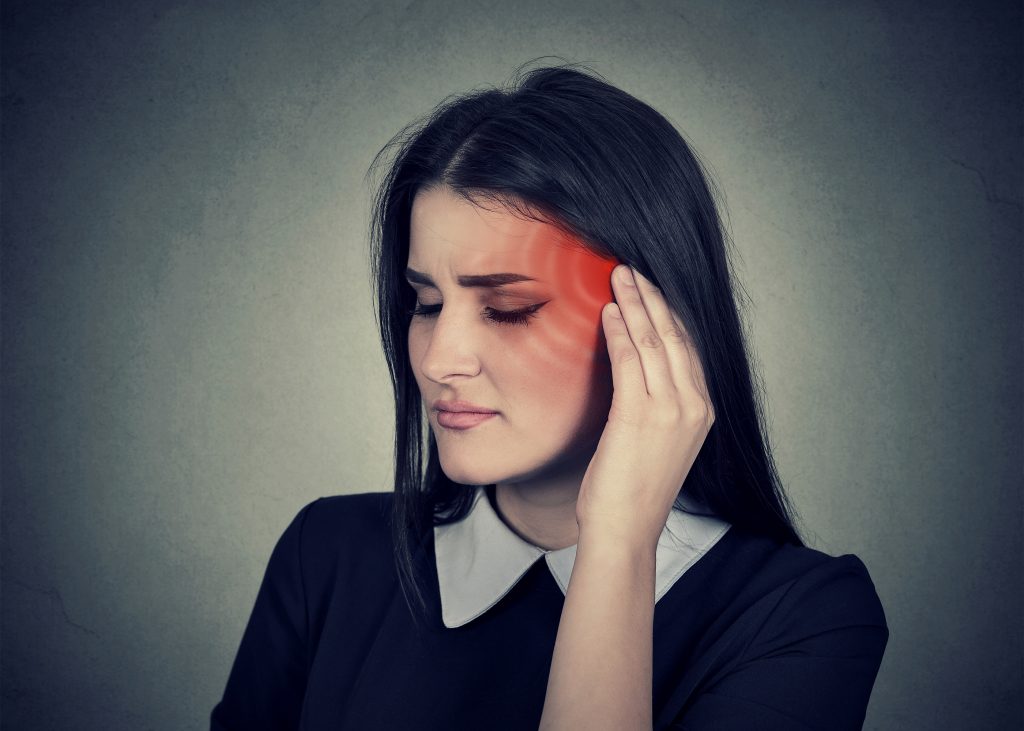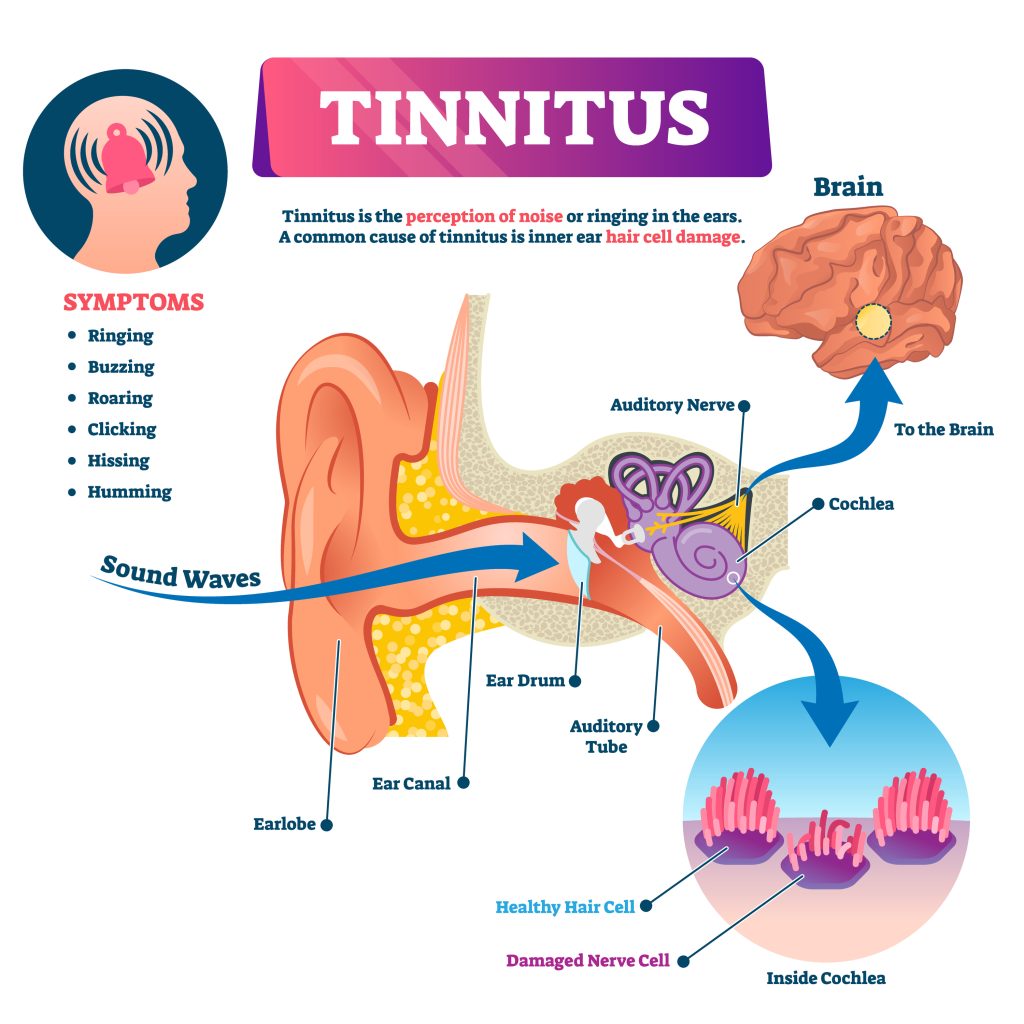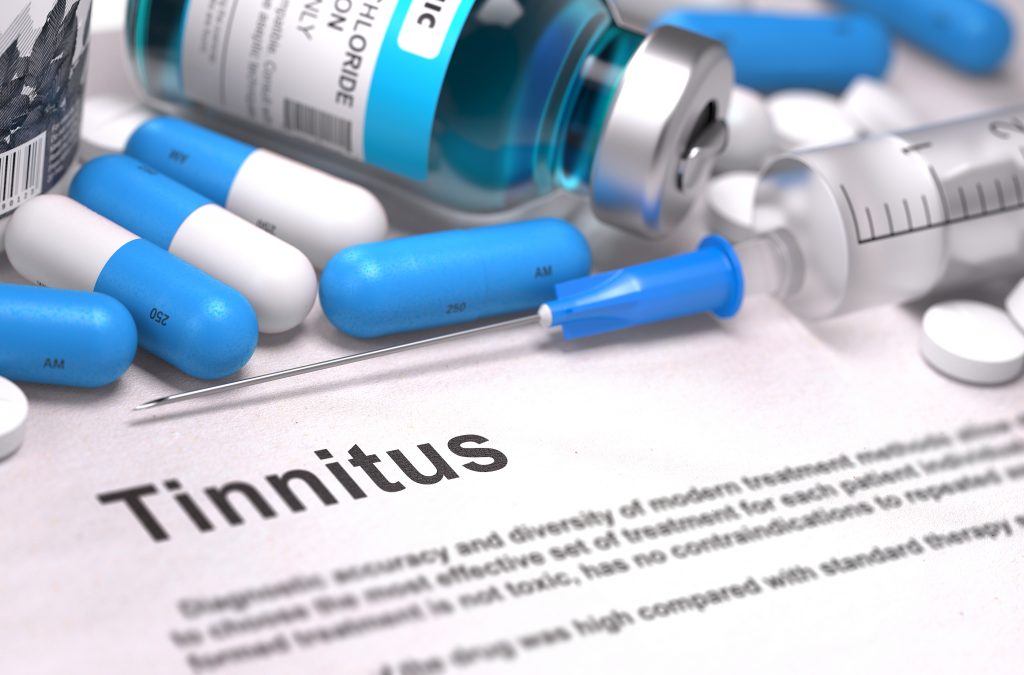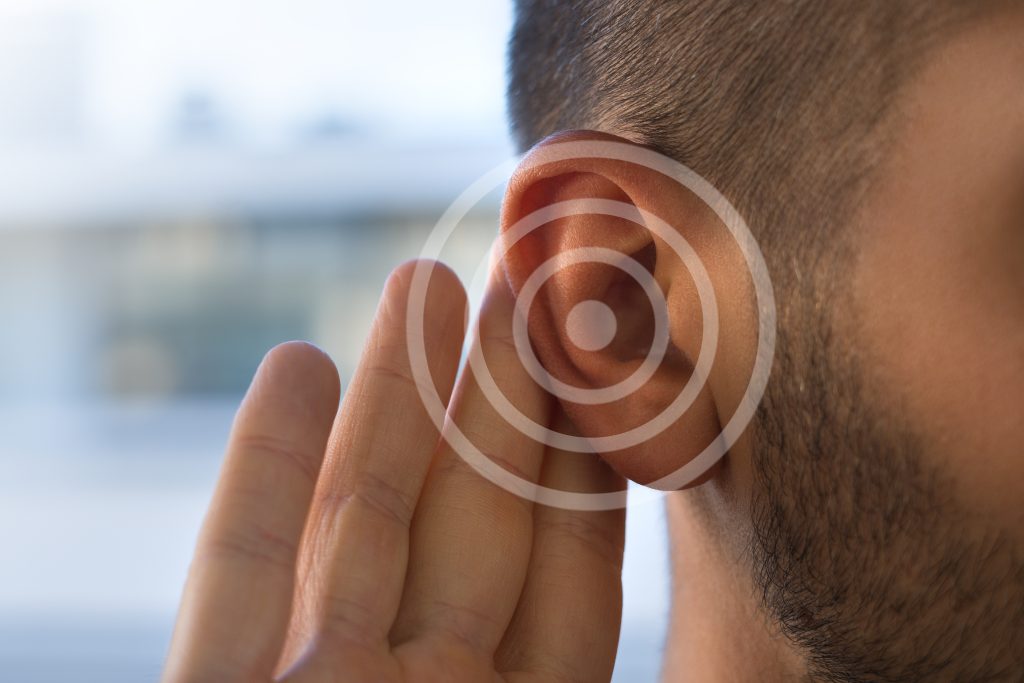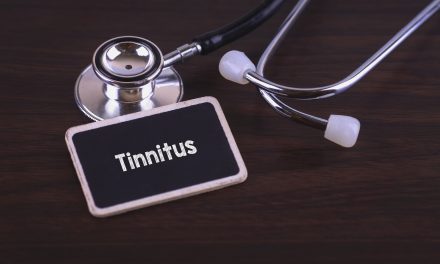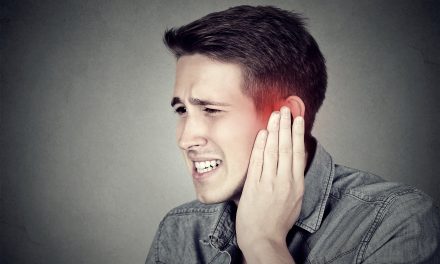Tinnitus, a constant or intermittent ringing, buzzing, or hissing sound in the ears, affects millions of people worldwide and can significantly impact their daily lives. Though there is no definitive cure for tinnitus, there are various natural remedies and lifestyle changes that can help manage and alleviate its symptoms. In this article, we explore these non-invasive, holistic approaches to provide relief for those suffering from tinnitus.
Understanding the various factors that contribute to or exacerbate tinnitus is crucial in determining the most effective natural treatment. Some common triggers include exposure to loud noise, stress, and certain medications. By targeting these factors and adopting appropriate changes in diet, lifestyle, and mental well-being, tinnitus sufferers can experience substantial improvements in their symptoms.
Key Takeaways
- Natural treatments for tinnitus focus on lifestyle changes, dietary adjustments, and herbal remedies.
- Sound therapy, meditation, and acupuncture can help alleviate symptoms and improve quality of life.
- Preventive measures, such as protecting hearing and stress management, are essential in managing tinnitus symptoms.
Understanding Tinnitus
Causes of Tinnitus
Tinnitus is a common condition characterized by a constant ringing, buzzing, or hissing sound in the ears. It affects millions of people worldwide. The possible causes of tinnitus are:
- Exposure to loud noises: Prolonged exposure to loud sounds, such as music or machinery, can damage the delicate hair cells in the inner ear.
- Age-related hearing loss: As people age, their hearing abilities tend to decline naturally, potentially causing tinnitus.
- Ear infections or blockages: Infections and blockages in the ear can create pressure leading to tinnitus.
- Certain medications: Some medications, like certain antibiotics and cancer drugs, may cause temporary or permanent tinnitus.
- Head or neck injuries: Trauma to the head or neck can cause tinnitus by disrupting the auditory system.
Symptoms of Tinnitus
While the primary symptom of tinnitus is the persistent sound in the ear(s), additional symptoms may include:
- Hearing loss: Difficulty hearing or understanding speech.
- Insomnia: Difficulty falling asleep due to the constant noise.
- Anxiety and stress: Increased anxiety or stress levels due to the persistent sound.
- Difficulty concentrating: The ongoing noise may serve as a distraction, making focusing on tasks difficult.
Types of Tinnitus
Tinnitus is classified into two main types, both of which have distinct characteristics:
- Subjective tinnitus: This is the most common type, experienced solely by the affected individual. It is typically caused by damage to the auditory system.
- Objective tinnitus: This type is quite rare and can be heard by a healthcare provider during examination. It may be caused by blood vessel issues, muscle contractions, or bone conditions in the middle ear.
In summary, understanding the causes, symptoms, and types of tinnitus is essential for those who seek to effectively manage or treat the condition.
Dietary Adjustments for Tinnitus
Foods to Include
To alleviate the symptoms of tinnitus, consider incorporating these nutrient-rich foods into your diet:
- Vitamin B12-rich foods: Foods high in vitamin B12, such as shellfish, poultry, eggs, and fortified cereals, may help reduce tinnitus symptoms. Vitamin B12 is known to maintain healthy nerves and decrease inflammation.
- Magnesium-rich foods: Incorporate magnesium-rich foods like almonds, spinach, pumpkin seeds, and dark chocolate. Magnesium plays a crucial role in nerve function and may help reduce tinnitus severity.
- Zinc-rich foods: Oysters, lentils, beef, and seeds are high in zinc, which is essential for immune function and may help reduce inflammation that aggravates tinnitus.
- Potassium-rich foods: Consuming potassium-rich foods such as bananas, potatoes, and avocados can aid in regulating fluid balance in the body, including the inner ear, potentially alleviating tinnitus symptoms.
Foods to Avoid
Limiting or avoiding the following food groups may help minimize tinnitus symptoms:
- Sodium: High salt intake can cause fluid retention and disrupt the balance of fluids in the inner ear, potentially worsening tinnitus symptoms. Limit processed foods, canned goods, and restaurant meals that are high in sodium.
- Caffeine: Caffeine is a stimulant found in coffee, tea, and chocolate. It can temporarily increase alertness but may also exacerbate tinnitus symptoms in some individuals. Try reducing caffeine intake to see if it improves your symptoms.
- Alcohol: Alcohol consumption can increase inflammation and lead to changes in blood flow, which may intensify tinnitus symptoms. Cutting back on alcohol may help alleviate the symptoms.
- Sugary and processed foods: Consuming excessive sugar and processed foods can increase inflammation in the body, potentially worsening tinnitus symptoms. Opt for a balanced diet that focuses on whole, nutritious foods.
By modifying your diet and including nutrient-rich foods while limiting triggers, you may potentially alleviate some of the discomfort associated with tinnitus. Always consult a healthcare professional before making significant dietary changes.
Herbal Remedies
Ginkgo Biloba
Ginkgo biloba is a popular herb known for its potential positive effects on blood circulation and cognitive functions. Some studies suggest that ginkgo biloba may also help alleviate tinnitus symptoms by improving blood flow to the inner ear. To use ginkgo biloba for tinnitus, a standard dosage recommendation is:
- 120 mg to 240 mg of ginkgo biloba extract
- Divided into 2-3 doses daily
- For a duration of 4-6 weeks
Keep in mind that ginkgo biloba may not provide immediate relief, and it is essential to follow the recommended dosage guidelines. Also, consult with a healthcare professional before starting any herbal supplements.
Hawthorn Berry
Hawthorn berry has been traditionally used to treat various cardiovascular disorders. It is believed to help regulate blood pressure and improve blood circulation, which can potentially benefit individuals with tinnitus. To incorporate hawthorn berry into your tinnitus management plan, consider the following recommendations:
- Consume 500 mg of hawthorn berry extract
- In 1-2 doses per day
- For a minimum of 2 months
Please note that hawthorn berry supplements may interact with certain medications, such as blood pressure and heart medications, so it’s important to consult your healthcare provider before beginning a hawthorn berry regimen.
Garlic
Garlic is a versatile, widely-used herb that can provide potential benefits for tinnitus sufferers. Garlic has been known for its anti-inflammatory and antioxidant properties, which could contribute to reducing inflammation and oxidative stress in the inner ear. To use garlic for tinnitus relief, consider the following suggestions:
- Incorporate garlic into your daily diet by adding it to salads, soups, stews, or other dishes.
- Consume 600 mg of garlic extract in supplement form per day, divided into 2-3 doses.
- Try a garlic oil ear drop, following the manufacturer’s instructions for dosage and application.
Always consult a healthcare professional before starting a new supplement or using an unfamiliar treatment method, and remember that individual results may vary.
Supplements for Tinnitus Relief
Tinnitus, a ringing or buzzing in the ears, can be a frustrating and often debilitating condition. Various natural remedies may help alleviate the symptoms, and some essential dietary supplements have shown promise in providing relief. These supplements, which include Magnesium, Zinc, and Vitamin B12, are discussed below.
Magnesium
Magnesium is an essential mineral that plays a crucial role in maintaining the nervous system’s proper functioning. Some studies suggest that magnesium may help reduce the severity of tinnitus symptoms. A deficiency in magnesium can lead to the constriction of blood vessels in the inner ear, which may contribute to tinnitus.
To achieve sufficient magnesium levels, consider incorporating magnesium-rich foods such as:
- Dark leafy greens
- Nuts and seeds
- Whole grains
- Legumes
- Bananas
Alternatively, consult a healthcare professional about incorporating magnesium supplements into your daily routine.
Zinc
Zinc is an essential trace mineral that helps to support the immune system and maintain the senses of taste and smell. Studies have demonstrated a possible connection between zinc deficiency and the development or worsening of tinnitus symptoms. Ensuring an adequate intake of zinc may help to alleviate tinnitus symptoms for some individuals.
Zinc can be found in various dietary sources, including:
- Shellfish
- Meat
- Whole grains
- Legumes
- Dairy products
If you suspect a deficiency, consult your healthcare professional about zinc supplementation.
Vitamin B12
Vitamin B12 is a vital nutrient that maintains healthy nerve cells and aids in the production of DNA and RNA. Among its many functions, it is essential for maintaining the myelin sheath, which insulates nerve fibers and helps transmit electrical signals. Research has shown a potential link between vitamin B12 deficiency and tinnitus, particularly in cases where tinnitus is related to nerve damage.
Vitamin B12 can be obtained through dietary sources such as:
- Animal products (meat, fish, eggs, dairy)
- Fortified plant-based milk and breakfast cereals
- Nutritional yeast
For individuals unable to consume sufficient vitamin B12 through diet alone, supplements may be necessary. Consult your healthcare professional to determine the appropriate dosage.
Remember that each individual’s needs may differ, and it is essential to seek professional advice before introducing any new supplement into your routine. Although more research is needed to determine the efficacy of these supplements, incorporating magnesium, zinc, and vitamin B12 into your diet may be a step towards tinnitus relief.
Lifestyle Changes and Home Care
Exercise Regularly
Engaging in regular physical activity can be beneficial for individuals suffering from tinnitus. Exercise helps improve blood circulation, which plays a crucial role in maintaining healthy hearing functions. Additionally, participating in activities such as walking, cycling, or swimming can serve as effective distractions for tinnitus noise. It is essential, however, to avoid excessive noise exposure during exercise by keeping the volume of music or other audio sources at a reasonable level.
Stress Management Techniques
Tinnitus symptoms can be aggravated by stress, making it necessary to incorporate effective stress management techniques into one’s daily routine. Some popular stress-relief practices include:
- Meditation: Practicing mindfulness or other forms of meditation helps bring focus and relaxation, reducing the perception of tinnitus.
- Yoga: Incorporating yoga into daily life can aid in stress reduction, enhance flexibility, and promote overall well-being.
- Deep breathing exercises: Diaphragmatic breathing, also known as belly breathing, can produce a calming effect.
- Progressive Muscle Relaxation (PMR): This technique involves the systematic tensing and releasing of various muscle groups, promoting relaxation and stress relief.
Improving Sleep Quality
Poor sleep quality can worsen tinnitus symptoms, so it’s essential to establish and maintain healthy sleep habits. Some recommendations for improving sleep quality include:
- Establish a consistent sleep schedule: Going to bed and waking up at the same time every day helps create a stable sleep pattern.
- Create a calming bedtime routine: Engage in activities like reading, taking a warm bath, or practicing relaxation techniques before bed to signal your body that it’s time to unwind.
- Ensure a comfortable sleep environment: Keep the bedroom cool, dark, and quiet, while investing in a supportive mattress and pillows. Using a white noise machine or a fan may also help drown out tinnitus noises.
- Limit exposure to screens before bedtime: The blue light emitted by phones, computers, and television screens can interfere with melatonin production, making it harder to fall asleep. Avoid screens in the hour leading up to bedtime.
- Exercise during the day: Engaging in physical activity during the day can have a positive impact on sleep quality by promoting feelings of relaxation and tiredness.
Adopting these lifestyle changes and home care techniques may help alleviate tinnitus symptoms and lead to an improved quality of life.
Sound Therapy Options
Sound therapy has been increasingly recognized as an effective method for treating tinnitus. It involves using different types of sounds to help manage and alleviate the symptoms of tinnitus. In this section, we will discuss the benefits and applications of three popular sound therapy options: White Noise, Binaural Beats, and Notched Music Therapy.
White Noise
White noise is a type of noise that contains equal intensities of all frequencies within the range of human hearing. It is similar to the sound of a TV or radio tuned to static. White noise has been shown to be effective in masking the annoying sounds associated with tinnitus, thus providing relief for many sufferers.
There are several ways to access white noise for tinnitus relief:
- White noise machines
- Smartphone apps
- Online websites and videos
It is important to remember that the effectiveness of white noise therapy varies from person to person. Some individuals may find more relief using pink or brown noise, which have different frequency distributions.
Binaural Beats
Binaural beats are an auditory phenomenon created when a listener perceives two slightly different frequencies presented separately to each ear. The brain perceives this difference and creates a third, “beat,” frequency. Binaural beats have been shown to promote relaxation, reduce anxiety, and improve focus – all factors that may contribute to tinnitus relief.
To benefit from binaural beats therapy for tinnitus, consider the following options:
- Binaural beat recordings
- Smartphone apps
- Customized audio tracks created by a qualified professional
It is recommended to use headphones or earbuds to achieve the best results for binaural beats therapy.
Notched Music Therapy
Notched music therapy is a personalized sound therapy approach that involves creating a “notch” in an individual’s preferred music, removing the frequency range associated with their tinnitus. This therapy method may help to reduce tinnitus symptoms over time by promoting neuroplastic changes in the brain.
Some steps to follow for notched music therapy include:
- Determine the frequency of your tinnitus with the help of a professional.
- Find or create notched music by removing the identified frequency range.
- Listen to the notched music for a prescribed amount of time each day.
While notched music therapy may not work for everyone, it presents a customized and enjoyable approach to sound therapy for tinnitus sufferers.
Mindfulness and Meditation
Deep Breathing Exercises
Practicing deep breathing exercises can help alleviate tinnitus symptoms by reducing stress and promoting relaxation. To start, find a comfortable position, either sitting or lying down. Close your eyes and focus on your breath, inhaling deeply through your nose and exhaling slowly through your mouth. Some deep breathing techniques to try include:
- 4-7-8 Breathing: Inhale for 4 seconds, hold for 7 seconds, and exhale for 8 seconds.
- Box Breathing: Inhale, hold, exhale, and pause for 4 seconds each.
Remember to practice deep breathing exercises for at least 5-10 minutes daily for the best results.
Guided Meditation
Guided meditation involves following instructions provided by an experienced meditation practitioner or a recording. This practice helps calm the mind and redirect focus away from tinnitus. Some tips for introducing guided meditation:
- Choose a quiet and comfortable environment.
- Sit or lie down with a straight back.
- Use headphones to play the guided meditation.
- Focus on the instructions, allowing thoughts to come and go without judgment.
There are numerous guided meditation apps and websites available, providing options to suit individual preferences.
Yoga for Tinnitus
Yoga combines physical poses, deep breathing, and meditation to encourage relaxation and stress reduction. It can be an effective complementary therapy for tinnitus sufferers. Some beneficial yoga poses for tinnitus include:
| Yoga Pose | Description |
|---|---|
| Child’s Pose | Sit on your heels, fold forward, and rest your forehead on the ground. |
| Legs Up the Wall | Lie on your back with your legs extended up against a wall. |
| Neck Stretches | Gently tilt your head from side to side and rotate clockwise and counterclockwise. |
Incorporate these poses into a regular yoga practice for a holistic approach to managing tinnitus symptoms.
Acupuncture and Acupressure
Acupuncture and acupressure have been used for centuries to help alleviate various health concerns, including tinnitus. These alternative therapies involve targeting and stimulating specific points on the body to maintain and restore balance.
Acupuncture Points for Tinnitus
When using acupuncture for tinnitus treatment, a professional acupuncturist targets specific points on the body. Some commonly used points to alleviate tinnitus symptoms include:
- TB17 (Yifeng): Located behind the earlobe, on the mastoid bone.
- TB21 (Ergong): Positioned right above the ear, on the upper edge of the auricle.
- GB2 (Tinghui): Near the lower region of the ear, in the depression before the ascending earlobe.
- SI19 (Tinggong): Just in front of the ear, in the depression between the cheek and tragus.
These points are chosen based on individual symptoms and overall health condition, as well as the potential root cause of the tinnitus.
Self-Acupressure Techniques
For those who prefer a more hands-on and potentially less intrusive approach, acupressure can be an effective solution. Here are some simple techniques that can be performed at home:
- Ear Massage:
- Gently massage the area around the ear, e.g., behind the earlobe, upper ridge, and lower border of the ear.
- Frequency: 1-2 minutes, 2-3 times a day
- GB20 (Fengchi):
- Locate the depression at the base of the skull, between the two large neck muscles.
- Apply firm, yet gentle pressure for 1 minute.
- Frequency: 1-2 minutes, 2-3 times a day
- LI4 (Hegu):
- Find the highest point of the muscle between the thumb and index finger.
- Apply deep, circular pressure with the thumb of your opposite hand.
- Frequency: 1 minute, 1-2 times a day
- LV3 (Taichong):
- Locate the sensitive area between the first and second toes, in the depression before your foot bones meet.
- Apply firm pressure using the tip of your finger or a rounded object.
- Frequency: 1 minute, 1-2 times a day
It’s essential to practice these techniques consistently for optimal results. However, it’s important to remember that every individual’s response to acupuncture and acupressure may vary, and it’s always wise to consult with a professional before starting any new treatment.
Professional Medical Treatments
While natural remedies can provide some relief for tinnitus sufferers, professional medical treatments are often necessary for the most effective results. This section will explore various medically endorsed therapies and methods to help mitigate the effects of tinnitus.
Cognitive Behavioral Therapy
Cognitive Behavioral Therapy (CBT) is a psychological treatment that aims to change the negative thought patterns and reactions to tinnitus. By changing these associations, patients can effectively reduce the emotional distress and impact of tinnitus on their daily life.
CBT typically involves:
- Identifying and challenging negative thoughts
- Developing coping strategies and relaxation techniques
- Building a support network
It is important to note that CBT does not eliminate tinnitus but rather helps the individual manage their experience of the condition.
Tinnitus Retraining Therapy
Tinnitus Retraining Therapy (TRT) is another professional treatment that focuses on retraining the brain to better cope with the noise caused by tinnitus. It combines sound therapy and counseling to achieve this goal.
The key components of TRT include:
- Counseling: helps patients understand tinnitus and develop coping strategies
- Sound Therapy: utilizes low-level background noise or white noise to reduce the perception of tinnitus sounds
The overall goal of TRT is to provide gradual relief by teaching the brain to ignore the noise generated by tinnitus.
Hearing Aids and Maskers
For some, tinnitus is linked to hearing loss. In these cases, hearing aids can provide relief by amplifying ambient sounds, thus reducing the perceived loudness of tinnitus.
Maskers are devices that generate white noise or other soothing sounds to “mask” the noise caused by tinnitus. They can be standalone devices or combined with hearing aids.
Here are some options:
- Hearing Aids: amplify environmental sounds and can help reduce tinnitus perception
- Maskers: devices that produce white noise or soothing sounds to cover the tinnitus noise
- Combination Devices: combine the functions of hearing aids and maskers
These treatments may be particularly beneficial for people with tinnitus-related hearing loss or those who struggle to sleep due to the noise.
Preventive Measures
While there are various natural treatments for tinnitus, it is important to focus on preventive measures to reduce the likelihood of developing or aggravating the condition. In this section, we will discuss two crucial preventive measures: Protecting Ears from Loud Noises and Regular Hearing Check-ups.
Protecting Ears from Loud Noises
One of the leading causes of tinnitus is exposure to loud noises. Therefore, it is crucial to protect your ears from such environments. Here are some steps to follow:
- Avoid excessive noise exposure: Limit time spent in places with high noise levels, such as concerts, clubs, or construction sites.
- Use hearing protection: Wear earplugs or earmuffs when you cannot avoid exposure to loud noises.
- Turn down the volume: Keep the volume on personal audio devices, such as headphones or speakers, at a reasonable level.
- Create a quiet environment: At home, use soft furnishings and noise-reducing materials to create a relaxing and noise-free space.
Regular Hearing Check-ups
Hearing check-ups can play a vital role in detecting potential problems and managing tinnitus or other hearing-related conditions. Some advantages of regular hearing check-ups include:
- Early identification of hearing loss, which can be a significant factor in tinnitus development
- Timely intervention of any underlying conditions, thus preventing further deterioration
- Recommendations on suitable hearing protection and management strategies for different scenarios
| Frequency of Check-ups | Age Group | Importance |
|---|---|---|
| Every 2-3 years | Below 50 | Ensure ears are working well as age progresses |
| Annually | Over 50 | Monitor age-related hearing changes |
In conclusion, preventing tinnitus primarily revolves around taking care of your ears and being vigilant about loud noises. Regular hearing check-ups can also aid in early detection and prevention. By following these preventive measures, you can significantly reduce your risk of developing tinnitus.
Frequently Asked Questions
How can zinc supplements help manage tinnitus symptoms?
Zinc supplements may help manage tinnitus symptoms for some individuals, particularly if they have a deficiency. Zinc plays a crucial role in the nervous system and contributes to the maintenance of proper brain function. It is involved in neurotransmission and nerve cell communication, both of which may have a bearing on tinnitus symptoms. Increasing zinc intake through supplements or a diet rich in zinc sources, such as meats and legumes, can potentially help alleviate tinnitus for those with a deficiency.
Can massage therapy be effective for tinnitus relief?
Massage therapy might provide tinnitus relief for some individuals. Because tinnitus has been linked to muscle tension, particularly in the neck and jaw area, massage therapy can help by relaxing these muscles and improving blood flow. Improved circulation can potentially reduce inflammation and promote nerve health, leading to a decrease in tinnitus symptoms.
What immediate actions can reduce the ringing in ears?
To reduce the ringing in the ears, individuals can try several immediate actions. One such action is masking the sound by playing soft music or using a white noise machine. People can also try relaxation techniques, such as deep breathing, meditation, or yoga, to help distract their focus from the ringing. Lastly, limiting exposure to loud noises and protecting the ears with earplugs when needed can help prevent further aggravation of tinnitus.
Which medications are considered most effective for treating tinnitus?
For treating tinnitus, there is no one-size-fits-all medication. However, depending on the underlying cause, some medications may help alleviate symptoms. Antidepressants and anti-anxiety medications can aid in managing stress-related tinnitus. If the cause is an infection, antibiotics might be prescribed. In cases where tinnitus is a side effect of an existing medication, a healthcare provider may recommend a change in the prescription.
Are there any homeopathic treatments recognized for tinnitus alleviation?
Various homeopathic treatments have been suggested for tinnitus alleviation, but their efficacy remains largely anecdotal. Some common homeopathic remedies include Ginkgo Biloba, which is believed to improve blood flow to the brain, and Arnica, which is known for its anti-inflammatory properties. However, scientific evidence is limited, and individuals should consult with a healthcare professional before trying any homeopathic treatment.
What cutting-edge therapies are available for tinnitus patients?
Several cutting-edge therapies are being researched for tinnitus relief. One such therapy is cognitive-behavioral therapy (CBT), which helps individuals alter the way they think about and react to tinnitus. Sound therapy techniques, such as notched music or customized sound masking, are also being explored. Additionally, neuromodulation techniques, like transcranial magnetic stimulation, show potential for tinnitus treatment. However, it’s essential to consult with a healthcare professional before pursuing any new therapy.

